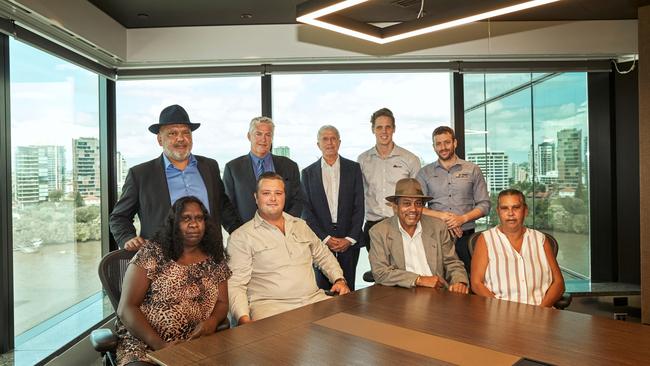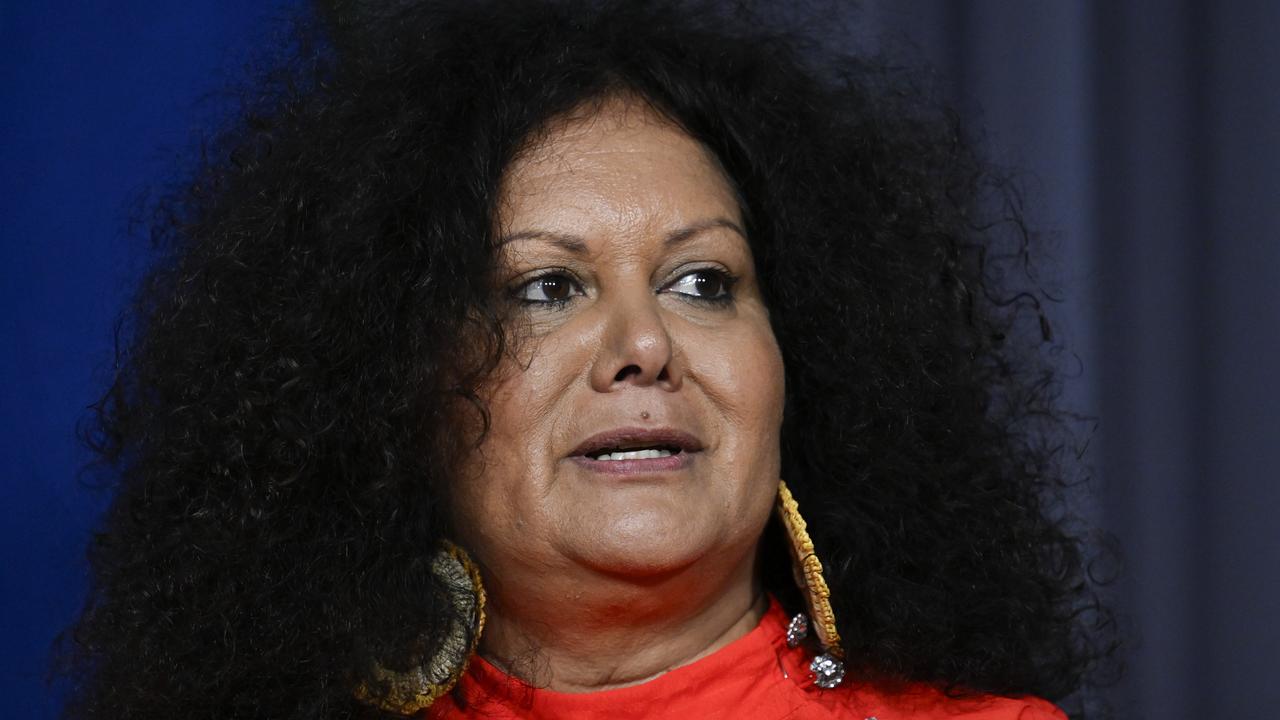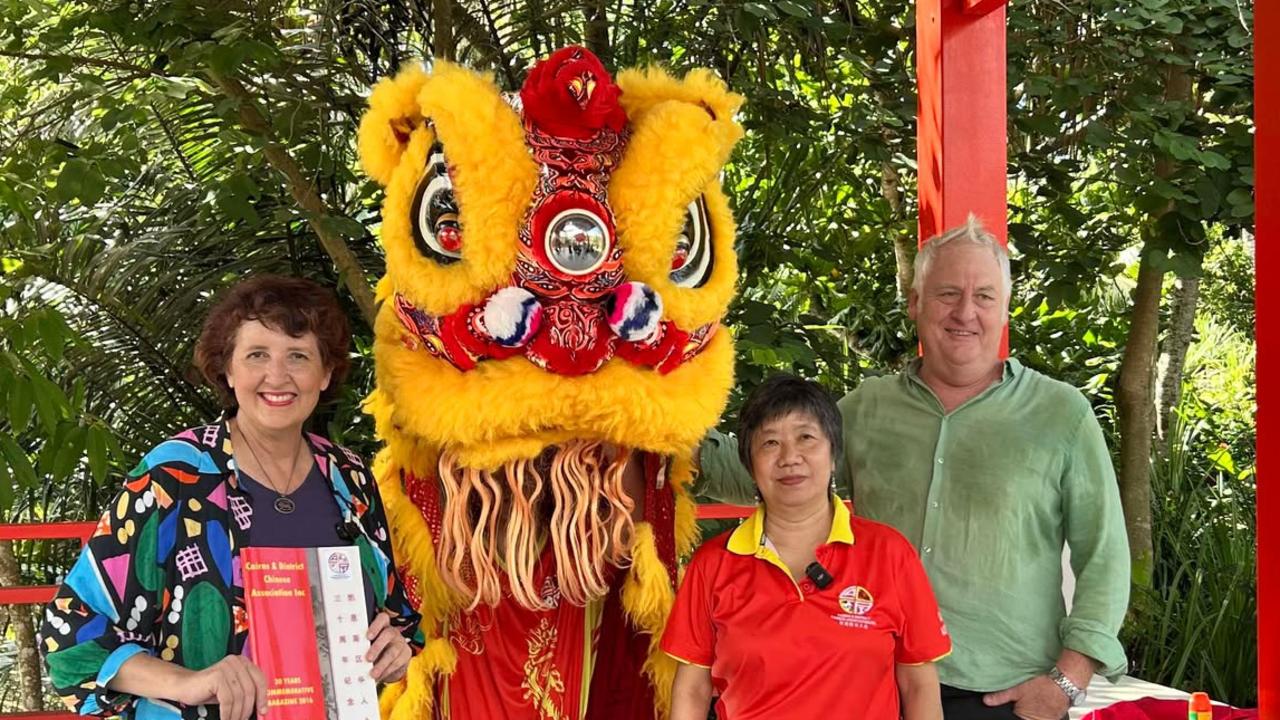Indigenous leaders back $300m Aurukun port plan
Cape York indigenous leaders have called on governments to back a $300 million Aurukun port proposal for northern Queensland.

Cape York indigenous leaders are backing a $300m Aurukun port proposal — a multi-industry facility for bulk ore and live exports — and have called on governments to lift the “black shadow” from the north Queensland community after years of “undelivered promises”.
Private resource company Aurum Pacific has launched a scoping study into the port development, which would be capable of handling 12 million tonnes of bauxite a year, after securing an indigenous land-usage agreement with the Ngan Aak-Kunch Aboriginal Corporation and Cape York Land Council.
The Brisbane-based firm, which has interests in local and overseas mines, including bauxite operations in the Solomon Islands, has been backed by Cape York leaders including NAK chair Barbara Bandicootcha, CYLC chair Richie Ah Mat and Noel Pearson.
A key element of the agreement struck with indigenous groups, which includes exclusive bauxite mining rights under the ILUA, was a commitment to inject up to $50m annually into the Aurukun community.
Aurum Pacific managing director Scott Dodd said the Aurukun site was unique as it had a “large supply of high-quality bauxite right near deepwater access that is ready for development”.
“We believe Aurukun is one of the last remaining sites of its kind for bauxite extraction in Australia,” he said.
Mr Dodd, who wants at least 60 per cent of the workforce at the proposed mine and port to be sourced from local indigenous communities, said Aurukun was also “strategically located for cattle exporting” supported by new stockyards.
Mr Ah Mat said it was time for all levels of government to “take the next step” and deliver jobs and economic stimulus to the region.
“It will take boredom out of the community. Jobs and economic development are critical. Aurukun could be a driving force for export of not only bauxite but also agricultural opportunities, through livestock,” Mr Ah Mat told The Weekend Australian.
“For too long, Aurukun has been like a black shadow because of the promises people say to them but never deliver.”
Mr Ah Mat said governments and the council should be “clapping their hands in glee to make sure this project happens”. He said if the potential injection of $50m into the community didn’t support positive outcomes, “something is definitely wrong”.
“I hope it doesn’t take too long for the development to happen. It could change the face of Aurukun. Words are cheap … the governments and council have just got to take the next step,” he said.
Ms Bandicootcha, who signed the ILUA with Aurum Pacific before Christmas, said the project would be driven from a “grassroots level”.
“This project will create jobs and that’s the biggest issue we have in community in relation to employment,” Ms Bandicootcha told The Weekend Australian.
Ms Bandicootcha said there was “frustration” in the community after previous proposals had fallen over, which had increased “expectations” but not delivered for Aurukun.
“It has been very frustrating. The expectation of the people, it gets so high. It’s something we’ve heard so many times. There are so many opportunities here with the Wik lands,” she said.
“And it doesn’t have to be mining all the time. There are other opportunities with the employment side that will create jobs. Not everyone wants to be a miner.”
Ms Bandicootcha said the prospect of up to $50m being pumped into local communities would go “a long way”, adding her message to governments was “this is what we want”.
“It will do the things we’ve always sat around the table and spoke of as a community as the Wik nation. It provides a start for our people to actually do something with ourselves and for our people and our country, because we always have people talking about handouts.”
Mr Pearson said the project would be a “game changer” for the Wik people and Aurukun.
“This community is the victim of a long history of decisions being made by governments and companies, without the community and traditional owners first having the say over the development of their lands,” Mr Pearson said.
“The young people need jobs. They need a future … where they can live productive lives.”



